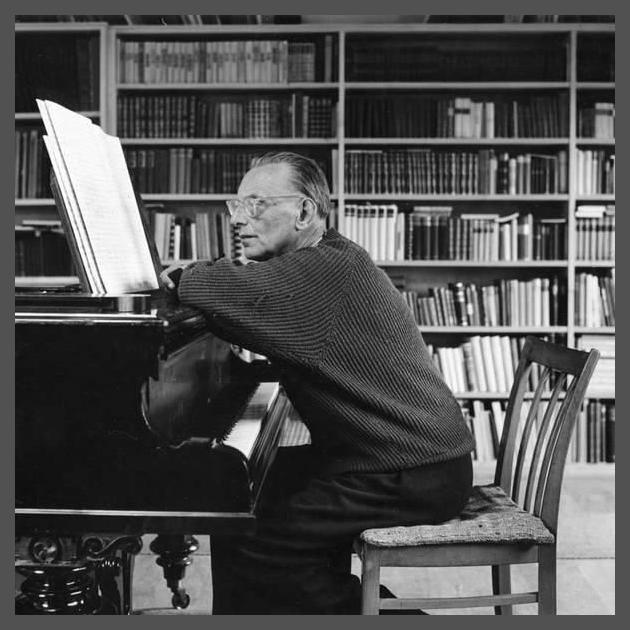 Carl Orff
Carl Orff
Symphony of the Medieval
In the ethereal realm of classical music, where ancient melodies intertwine with modern interpretations, lies the enigmatic figure of Carl Orff. The German composer, whose magnum opus "Carmina Burana" has captivated audiences for generations, left an indelible mark on the musical landscape.
The Man Behind the Masterpiece
Born in 1895 in Munich, Carl Orff's childhood was steeped in the arts. He immersed himself in music theory, dance, and theater, forging a path that would lead to his groundbreaking compositions.
Controversies and Challenges
Orff's artistic journey was not without its obstacles. His unconventional approach to music challenged traditional norms, drawing criticism from some quarters. Undeterred, he pursued his vision with unwavering determination.
The Birth of "Carmina Burana"
In 1937, Orff stumbled upon a collection of medieval Latin poems titled "Carmina Burana." Inspired by their raw power and lyrical beauty, he began composing a choral masterpiece that would become his signature work.
A Triumphant Legacy
"Carmina Burana," with its iconic opening chorus "O Fortuna," premiered in 1937 to critical acclaim. Its dramatic orchestration, soaring melodies, and evocative lyrics captivated audiences worldwide. The work has since become a staple of classical repertoire, performed by countless orchestras and choirs.
Discography and Collaborations
Orff's discography extends far beyond "Carmina Burana." He composed numerous other choral works, including "Catulli Carmina" and "Trionfo di Afrodite." Orff also collaborated with musicians across genres, including the renowned soprano Maria Callas.
Members of the Ensemble
The original performance of "Carmina Burana" featured an ensemble of soloists, chorus, and orchestra. Notable members included soprano Dorothy Dow, tenor Richard Lewis, and baritone William Warfield.
A Timeless Masterpiece
Today, Carl Orff's music continues to resonate with audiences of all ages. His innovative compositions, rooted in ancient traditions yet imbued with modern sensibilities, stand as a testament to his brilliance and enduring legacy.
In the ethereal realm of classical music, where ancient melodies intertwine with modern interpretations, lies the enigmatic figure of Carl Orff. The German composer, whose magnum opus "Carmina Burana" has captivated audiences for generations, left an indelible mark on the musical landscape.
The Man Behind the Masterpiece
Born in 1895 in Munich, Carl Orff's childhood was steeped in the arts. He immersed himself in music theory, dance, and theater, forging a path that would lead to his groundbreaking compositions.
Controversies and Challenges
Orff's artistic journey was not without its obstacles. His unconventional approach to music challenged traditional norms, drawing criticism from some quarters. Undeterred, he pursued his vision with unwavering determination.
The Birth of "Carmina Burana"
In 1937, Orff stumbled upon a collection of medieval Latin poems titled "Carmina Burana." Inspired by their raw power and lyrical beauty, he began composing a choral masterpiece that would become his signature work.
A Triumphant Legacy
"Carmina Burana," with its iconic opening chorus "O Fortuna," premiered in 1937 to critical acclaim. Its dramatic orchestration, soaring melodies, and evocative lyrics captivated audiences worldwide. The work has since become a staple of classical repertoire, performed by countless orchestras and choirs.
Discography and Collaborations
Orff's discography extends far beyond "Carmina Burana." He composed numerous other choral works, including "Catulli Carmina" and "Trionfo di Afrodite." Orff also collaborated with musicians across genres, including the renowned soprano Maria Callas.
Members of the Ensemble
The original performance of "Carmina Burana" featured an ensemble of soloists, chorus, and orchestra. Notable members included soprano Dorothy Dow, tenor Richard Lewis, and baritone William Warfield.
A Timeless Masterpiece
Today, Carl Orff's music continues to resonate with audiences of all ages. His innovative compositions, rooted in ancient traditions yet imbued with modern sensibilities, stand as a testament to his brilliance and enduring legacy.